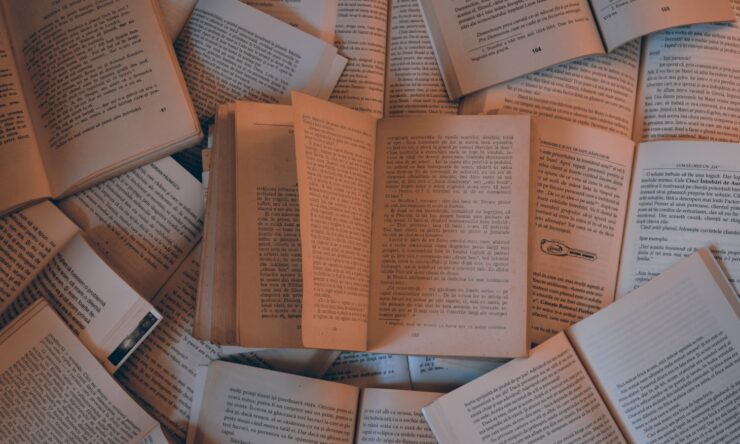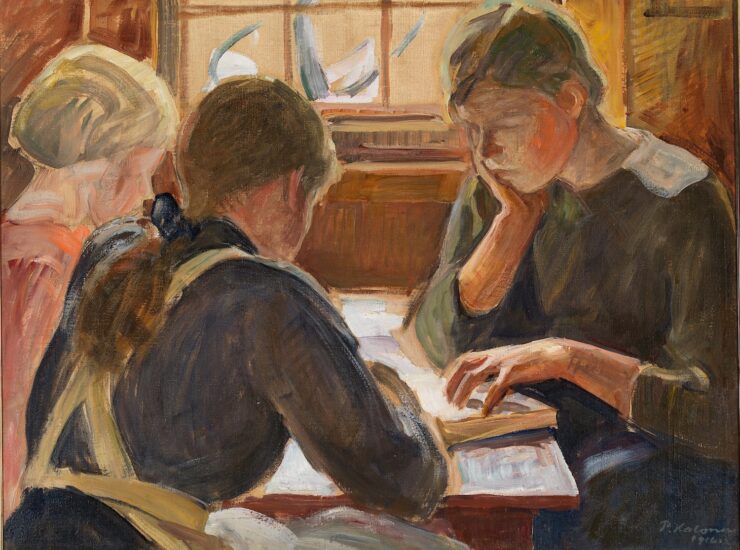Last week, Washington Post columnist Michael Dirda wrote a list of 29 rules for reading—though, as the subheader on the piece says, “They are not hard and fast.”
“Rules” is still an odd word here, though to be fair I doubt Dirda himself chose it for the headline. (He calls his list one of “reading habits and ‘crotchets,’ to use an old-fashioned term.”) The only rule for reading, as far as I’m concerned, is that one ought to read. Read something, read anything—books not required.
But like everyone else who spends too much time on the internet, I love a list. (To be fair to myself, I loved lists even before I spent too much time on the internet.) And, as it was likely intended to do, Dirda’s piece made me think about my own habits, many of which I’ve expounded upon in previous columns—but some of which might not sustain a whole post. Here, then, are 21 other thoughts, or habits, or crotchets, or notions about reading.
1. It is not a good day unless I picked up a book at some point. Exceptions made for traveling or for having visitors. But if I’m home, and life is “normal,” I need to read, even if just a chapter or two.
2. Format really doesn’t matter, but trade paperbacks are the ideal shape and size, and “premium” mass markets are a grotesque sin against those of us with small hands.
3. One of my worst reading habits is a tendency to read the acknowledgements first. Why? I don’t know. Curiosity? Wondering how many of the blurbers are also friends of the author? Seeing what residencies helped them finish the book? But it never tells me anything I need to know before starting the book itself, and is sometimes downright distracting. Don’t be like me. Just let the book speak for itself.
4. Life is too short to finish every book you start. Life is also too crowded to keep every book you read—but if you love a book, or a writer, there is absolutely nothing wrong with having multiple editions of certain books, especially if some of them are special or sentimental and some are for re-reading or lending out. I may have found a beautiful first edition of Sophie’s World, but I’m never getting rid of the beat-up mass-market paperback in which I wrote the name of everyone I lent it to in college.
5. If you find yourself dragging on a book, start reading another one in a different genre. Story collections are especially good for breaking up your time if you’re invested in, say, a dense nonfiction work, or a novel that requires you to come up for air every so often. I’m currently reading Ursula K. Le Guin’s Changing Planes (a book no one talks about nearly enough) and Jenn Shapland’s upcoming essay collection Thin Skin, with Emily Tesh’s Some Desperate Glory sandwiched between them for if I want to invest in a longer narrative.
6. Write in books, don’t write in books, fold corners, don’t fold corners—whatever makes you happy. I have tried and failed to become a person who writes in books; I don’t like my handwriting, so it makes them unpretty. But I admire the commitment of those who do.
7. I also really admire those of you who have a commonplace book, a thing I have been meaning to start for approximately ten thousand years and yet never gotten around to. You know what makes me remember a line from a book? Writing it down somewhere. You know what doesn’t help? The dozens of screenshots and sloppy photos of pages that live in my phone somewhere.
8. Only hate-read something when you really, really want to have an informed opinion about its failings. If possible, hate-read alongside a friend; the resulting text exchange or conversation may be more memorable than the book itself.
9. Don’t go into a bookstore unless you’re prepared to spend money. Look, I know. I know. You’re just going to browse! Just take a look at what the staff is recommending! This is never how it works out. Especially in a used bookstore. As a friend used to say, “Don’t pick up the puppy.” Meaning, you can’t handle the temptation. Unless you can! I don’t know your brain.
10. Accept that you may eventually need reading glasses. Fighting it is hopeless, and will just make you mad at small print. You can, of course, make the print bigger on e-readers, but you can also do this the old-fashioned way if you use reading glasses, which can be found in most drugstores and quite cheaply on the internet.
11. Cultivate the very specific joy of falling in love with a book through a digital copy, whether purchased or from the library, and then going in search of the most beautiful (or amusing!) print edition of it to add to your shelves. This search may take years. There’s no rush. Someday I will get my hands on the edition of A Wizard of Earthsea with the cover that features a half-man, half-hawk with oddly shapely calves.
12. Comics and graphic novels are impressively heavy, but if you clean out your stash before a move, you will very likely come to regret it. (Yes, I’m speaking from experience, though I did wisely keep my Grant Morrison collection.)
13. I wish there was a way to trade in my unread hardcovers for paperback editions of the same books, simply because hardcovers take up too much space, which is already at a premium in my apartment. (Sure, sometimes I take them to Powell’s to trade in, but last time I did that the ratio was something like 60 traded-in books to four new books, which is … well, maybe it’s good, actually, given the aforementioned lack of space.)
14. Indulge your every whim about organization. In rather High Fidelity fashion, I keep thinking about trying to shelve my books in the order in which I read them. It’s an absurd notion that would take days to sort out, but also sounds like a very good way to spend some time visiting old friends and finding a hundred things I wish to reread. (Yes: I am that person who offers to organize my friends’ books every time they move.)
15. When traveling, it’s not a matter of digital or print books, but carefully selecting a bit of each: a print book or two for reading when the airline tells you not to use your electronic devices (or by the pool, if it’s that kind of trip), and a few digital books for when you’ve used up the print ones. If you’re very clever, you might travel with print books that you’re unlikely to want to keep, and plan to leave them on book swap shelves or little free libraries or hotel lobbies wherever you happen to be. (Or you might take books set in the location you’re visiting, which I never think to do until I am already there.)
16. Having books in your house is great. Reading books from the library is great. Having a digital library is great. Putting all your books in little free libraries is great. What’s not great is being a dick about anyone else’s reading choices, book hoarding habits, and the like. (That said, I admit that despite my best intentions I remain gently suspicious of people who don’t appear to have a single book in their home.)
17. If you don’t take the jackets off your hardcovers while you read them, how do you even keep a grip on those slippery things?
18. Let kids read what they want to read. Graphic novels are books. Comics are books. If you think that your generation only read serious books growing up, I promise you, you’re practicing selective memory. My childhood didn’t have Captain Underpants, but we had more Garfield collections than any single human could possibly remember. If you let reading be fun for kids, they’ll keep thinking it’s fun, and their tastes will likely change, like ours all do.
19. If you tend to pick up your phone in moments of downtime—waiting in line, waiting at the doctor’s office, on public transit—try replacing it with a book for a day or a week or an indeterminate length of time. I don’t mean to sound hectory or overly idealistic, but it makes a difference. When I default to my phone, I’m more irritable, my attention more scattered. When I read instead, I feel better. This is anecdata, of course. But it’s a habit I think is worth cultivating.
20. The most tiresome debate among readers is the one about digital vs. paper books. As the meme says, why not both? And beyond that, your collection is yours; someone else’s collection (or decision not to have one!) is theirs. I don’t want to read another piece about how only paper books are real, or how having books in your home is performing intellectualism. I don’t care for ebooks because it’s harder for me to browse them when I’m thinking about themes, or reading histories, or just remembering where I was when I first encountered an author. A bookshelf is like a photo album, a series of snapshots of places you’ve visited (and people you’ve been). It’s not for anyone but the person it belongs to.
21. Why 21? Because it’s half of the answer to the question of life, the universe, and everything, and I sure as hell don’t have the whole answer to anything.














